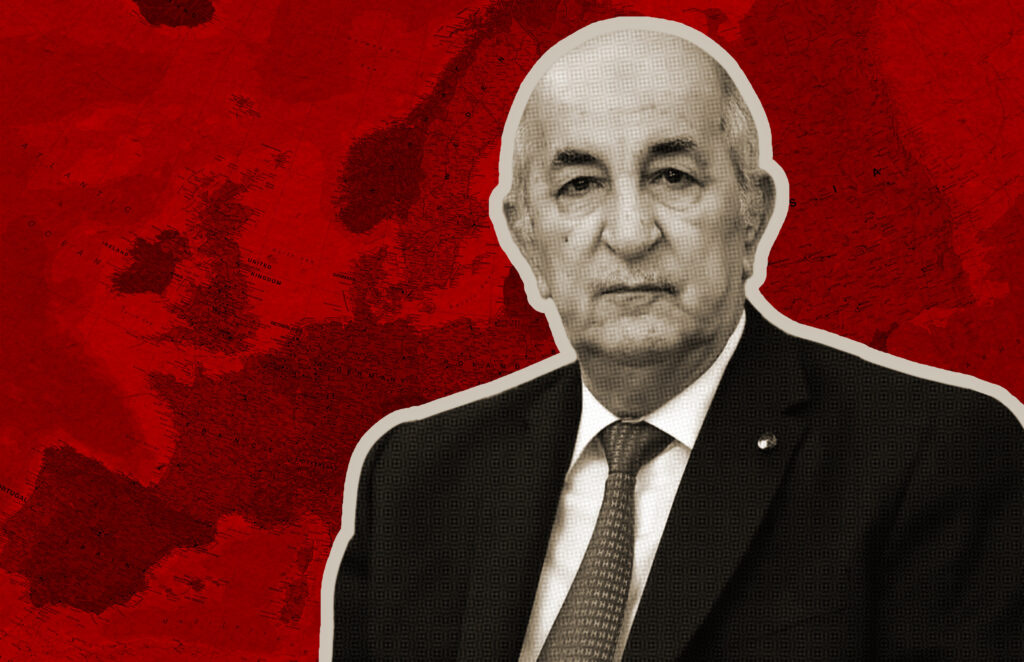Tensions Between Algeria, Morocco, and France

The political landscape in North Africa, particularly the strained relations between Algeria and Morocco, is deeply influenced by a variety of historical, economic, and geopolitical factors. At the heart of this tension is the ongoing conflict surrounding the Western Sahara region, but the situation has evolved significantly due to broader international events, especially the war in Ukraine.
The Russian invasion of Ukraine: A Catalyst for Change
The Russian invasion in 2022, set off a series of events that indirectly affected North Africa. Putin’s failure to capture Ukraine quickly led to mounting financial pressures, forcing him to seek alternative resources to fund its military ambitions. As Russia became increasingly isolated under international sanctions, it turned to Africa for support.
One of Russia’s strategies was to fuel anti-French sentiments across the continent, particularly in countries like Mali, Niger, and Burkina Faso, where France had a longstanding military presence. By promoting anti-colonial rhetoric – which is cynical considering that Russia is both colonialist and imperialist – Putin sought to weaken French influence, while leveraging the Russian paramilitary groups Wagner to secure control of key resources, such as gold mines.
With France’s gradual withdrawal from these regions to avoid direct conflict with Wagner’s forces, Russia seized an opportunity to take control of valuable gold mines, which could be exchanged for Chinese goods in support of the war. The extraction and transportation of gold from these African nations, compared to other resources like phosphate from Morocco, proved to be a more manageable trade asset, as it could be flown out more easily.
The Western Sahara Dispute and the French-Moroccan Alliance
Amid these shifting alliances, France found itself re-evaluating its interests in Africa. With the loss of its presence in several Sahelian countries, the French government sought new avenues for investment and resource access. In 2020, the United States recognized Morocco’s sovereignty over the disputed Western Sahara, a move that was eventually echoed by several European countries, including Spain and Germany.
In 2024, France formally aligned with this recognition and began to invest heavily in the region. This included plans for significant infrastructure development in the Western Sahara, such as the creation of factories and the generation of employment opportunities. For France, and Europe more broadly, this strategy offered a mutually beneficial arrangement: France would secure vital resources, particularly phosphate, while Morocco would receive economic investment. Additionnaly, Morocco would help the European Union control illigal immigration coming from Africa.
This shift in France’s foreign policy deeply angered Algeria, which has historically been a Russian ally and a staunch opponent of Morocco’s claims to the Western Sahara. Algeria, which supports the Polisario Front (a group fighting for the independence of the region), views Morocco’s increasing alliance with France as a direct threat to its geopolitical influence in the region.
Algeria’s Reaction and the Potential for Escalation
The situation escalated diplomatically when Algeria began to take retaliatory actions against France. This included the refusal to accept Algerian prisoners who were convicted in France, as well as increasing support for anti-French propaganda. Algerian media and influencers, often aligned with the country’s intelligence services trained in Soviet-era tactics, began calling for violence against French nationals, further exacerbating tensions.
For Algeria, the situation is framed in part by its historical grievances over French colonialism. However, many critics argue that after more than 65 years since the end of the Algerian War of Independence, it is disingenuous to continue using colonial history as a basis for present-day policy. This sense of historical victimhood is not shared by all countries that were once colonized. For instance, Morocco, also a former French protectorate, has used its colonial legacy as a stepping stone for development, positioning itself as a stable and modern nation in contrast to Algeria’s ongoing struggles with political and economic instability.
The Geopolitical Importance of the Western Sahara
The Western Sahara, situated adjacent to Mauritania, has gained new strategic importance. For France and the European Union, securing allies in North Africa is critical not only for economic reasons but also for security purposes. The region serves as a key entry point into Europe, and the ongoing instability in neighboring Sahelian countries makes it even more important to maintain stable relations with Morocco. The potential for increased illegal immigration and the threat of terrorism from groups like Al-Qaeda and ISIS are serious concerns for European security.
With Algeria increasingly aligned with Russia, there are fears that tensions could escalate into more than just diplomatic confrontations. If Algeria faces an economic collapse or a global conflict, it could resort to violent methods, using the Western Sahara as a “casus belli” or pretext for military action. The Polisario Front, with Algeria’s support, could potentially escalate their efforts against Morocco, targeting French investments and civilians, in an effort to destabilize the region.
Conclusion: A Delicate Balance of Power
The relationship between Algeria, Morocco, and France is complex, with historical grievances, economic interests, and geopolitical maneuvering all contributing to the tension. While diplomatic efforts continue, the situation remains fragile, with the potential for conflict escalating if economic or global crises push Algeria into more radical actions. As the conflict over the Western Sahara plays out, it is clear that the region’s stability will be a significant factor in the broader security concerns of Europe and North Africa in the coming years.
The geopolitical chess game in North Africa, particularly around the Western Sahara, is a stark reminder of the delicate balance that powers must maintain in order to avoid igniting larger-scale conflicts that could destabilize entire regions.